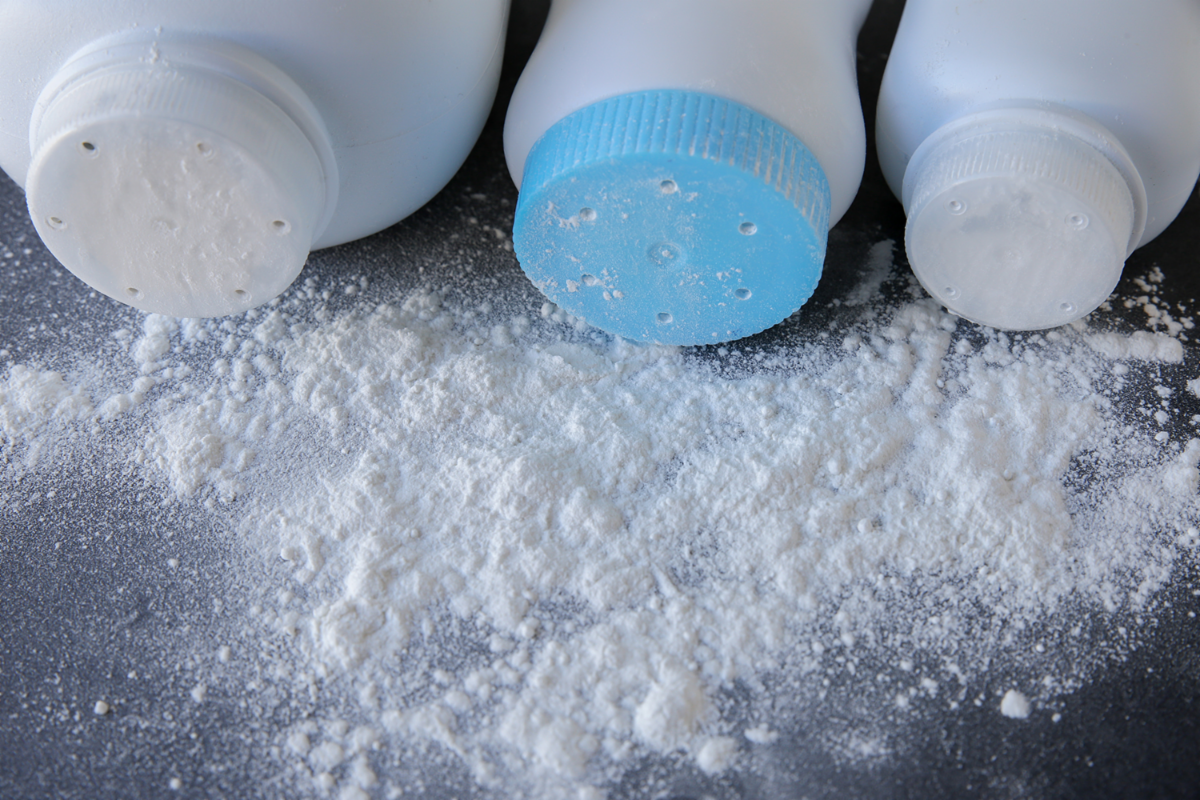 October 18, the U.S. Food and Drug Administration made an announcement that sent shock waves throughout the legal community: After decades of denials, Johnson & Johnson voluntarily pulled 15,000 bottles of its baby powder off of shelves due to possible asbestos contamination. In conjunction with the recall, the FDA issued a statement advising consumers to stop using the Johnson & Johnson talc lot in question.
October 18, the U.S. Food and Drug Administration made an announcement that sent shock waves throughout the legal community: After decades of denials, Johnson & Johnson voluntarily pulled 15,000 bottles of its baby powder off of shelves due to possible asbestos contamination. In conjunction with the recall, the FDA issued a statement advising consumers to stop using the Johnson & Johnson talc lot in question.
The recall was the result of FDA testing that found chrysotile fibers, a type of asbestos, in one of a limited number of baby powder samples it tested.
The move was a major blow for the company, which is currently defending itself against over 13,000 lawsuits filed by victims or survivors of people who have been diagnosed with certain asbestos-linked cancers, including ovarian cancer and mesothelioma, after using Johnson & Johnson baby powder and/or Shower to Shower talcum powder over a period of years.
Johnson & Johnson: Decades of Deceit
This year’s recall, and the FDA testing that led to it, are the latest in a nearly 50-year saga that has now led to billions of dollars in verdicts against Johnson & Johnson, and ongoing investigations by the U.S. Justice Department and the Securities and Exchange Commission.
These investigations include a criminal probe to determine the extent to which Johnson & Johnson hid the fact that their own testing has confirmed the presence of asbestos in some of their talc products since 1971.
An investigation conducted by Reuters found documentation showing that, not only did Johnson & Johnson know of potential problems and fail to warn consumers, but that the FDA played a hand in turning a blind eye toward potential dangers. Instead, the investigation found, they deferred to the talc industry and allowed companies like Johnson & Johnson to self-regulate.
The FDA only conceded to conducting its own testing after the Reuters report and thousands of lawsuits, underscoring the importance of civil litigation in holding corporations accountable.
Asbestos Denials
Though Johnson & Johnson agreed to a voluntary recall of one lot of talcum powder that the FDA identified as contaminated with asbestos, they did not admit fault. Instead, they conducted their own testing. Within 11 days, they announced that they had found no asbestos in their products, save for one sample that they explained was contaminated by an air conditioning unit.
Multiple reports indicate that, not only were Johnson & Johnson’s tests rushed, they were also unconventional. The FDA has said it stands solidly behind its tests, which showed asbestos contamination.
Still, when Johnson & Johnson’s own test results were released, its stock prices rose, indicating its own power in influencing the market.
What Does This Mean for Individual Talc Cases?
The recall and its fallout are certainly important aspects of the thousands of talc cases currently on trial or awaiting trial in the nation’s courts.
Neither the FDA results nor the recall are proverbial nails in the coffin for Johnson & Johnson, but they do add to a growing mountain of evidence that, for years, Johnson & Johnson may have knowingly sold talcum powder that contains carcinogens.
There are a handful of cases close to trial right now. These bellwether cases are setting the tone for the thousands of remaining cases, many of which are represented by OnderLaw in St. Louis.
We believe that the FDA’s discovery of trace amounts of asbestos in Johnson & Johnson baby powder and the company’s attempts to discredit FDA tests is further evidence of Johnson & Johnson’s willingness to put profits over lives.
Are You a Talc User who has been Diagnosed with Cancer?
You may be eligible for compensation if you are a woman who has used talc for four years or more and have been diagnosed with:
Epithelial ovarian cancer (serous, endometrioid, or clear cell)
Invasive fallopian tube cancer
Borderline serous cancer
Borderline mucinous tumor
At OnderLaw , we believe corporations like Johnson & Johnson need to be held accountable for the products they market and sell to consumers, especially when those products may cause harm — or worse — to those who use them.
If you have been diagnosed with any of the above cancers and used Johnson’s Baby Powder or Shower to Shower for four or more years, join us in holding Johnson & Johnson accountable. Call OnderLaw.












